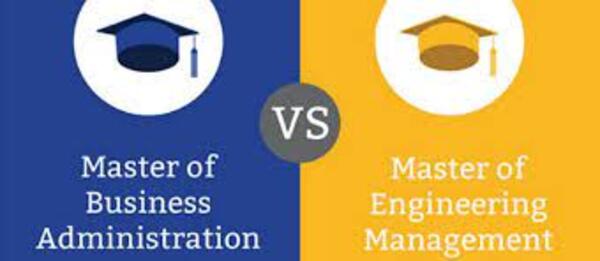Let us just tell you one more thing before we get started, “Indeed, it makes sense to pursue an MBA after the age of 30.”
It’s not unusual for people in their 30s to think about applying to MBA programs. Many MBA candidates are well into or even in their early 30s and are already midway through their careers.
Is it worthwhile to pursue an MBA after the age of 30? We’ll discuss this in this article. Or Is it too late to get an MBA? How can someone over 30 get into a prestigious business school? Which MBA programs accept applicants over 30?
Is MBA Worth It After 30?
Yes, it is possible to pursue an MBA at 30 or even after 40. At any stage of your life, it is never too late to pursue your passions, whether it be continuing your MBA after 30 or learning a new skill.
Additionally, there are numerous reasons to start over by getting an MBA at 30 and learning something new, such as for further professional advancement, switching industries, switching careers, moving up levels, receiving an increase in status and pay, and other such things!
However, the real question is: can you still do an MBA at 30 or 40? Is it too late to pursue an MBA? To answer this, think along these lines:
- Is pursuing a full-time MBA after the age of 30 the best move for your career?
- Can you accomplish your objectives without an MBA?
- After perhaps 1-3 years, would an Executive MBA program be a better fit for you?
Only after you have answered these questions for yourself can you decide whether or not a Full-Time MBA after 30 is a good fit for you.

At any stage of your career, there is no doubt that returning to school full-time to pursue an MBA after 30 or 40 is a significant investment. Nothing, however, should prevent you from pursuing an MBA after 30 as long as you demonstrate your commitment to your studies in your essays and interview.
Why MBA After 30?
Many factors contribute to people applying to business schools in their 30s rather than earlier. After one has accumulated a respectable amount of work experience and established themselves in one or more industries, an MBA seems like a few steps further in today’s society.
Career Upgrade
Your goal may be to move up to a senior or partner position even though you currently hold a mid-management position. By bridging the knowledge and skill gaps between where you are now and where you want to be, an MBA would aid in facilitating that transition.
Life Stage
You may have reached a stage in your life where you’ve been able to accomplish a few of your short-term objectives, which has allowed you to lead a more stable and settled lifestyle in terms of both your professional and personal lives.
Therefore, now may be the best time to invest in an MBA since you can afford it and it will only improve your ability to work and live.
Entrepreneurial Venture

You have finally decided to start a project of your own, which you would be leading yourself, after gaining years of experience, knowledge of the industry, and business acumen.
An MBA could help you get ready for what entrepreneurship entails and provide a strong foundation for starting your own business venture because the transition from a corporate work structure to an entrepreneurial one can be abrupt.
Salary Upgrade
It is common knowledge that job applicants with an MBA automatically earn a significantly higher salary than those without one.
An MBA, therefore, improves your leadership, strategy, and innovation skills in addition to your knowledge of your specialized field if you already hold an undergraduate degree in civil engineering and are looking for a pay raise. And for that reason, you merit the big money.
Work Requirement
Some working professionals perform exceptionally well at their jobs and end up getting promoted earlier than is typically the case. More duties, projects, and clients are given to them. It’s also possible that they are predisposed to leadership.
The only thing missing from this picture, then, is an MBA that would be appropriate for the position that has been offered to this employee. Since academic credibility translates into reliability, having an MBA is advantageous, especially when working with clients directly.
How to Improve Your MBA Odds If You Are Aspiring for MBA After 30+?
GMAT Should Be Appreciated
Decide which school you want to attend for your MBA after you turn 30 or 40 and research its GMAT requirements. and after that, focus on the GMAT exam.
To get into a top-tier business school, you should first aim for a GMAT score of 730 or higher because this will help your application stand out even if you are an older applicant pursuing an MBA after the age of 30.
Be Very Much Clear With Your Post-MBA Plans

The B school admissions committee always evaluates prospective applicants based on their post-MBA plans. Consequently, they anticipate that you will have clear future objectives and attainable goals, particularly if you are pursuing your MBA at 30 because you can now more clearly see the big picture.
Highlight the Social Impact You Have Created So Far
What impact you have had on yourself, your business, and society is another crucial aspect that AdComs evaluate. Take advantage of your extra years to gain a wider perspective and more self-awareness.
Give an example of how you have aided in the expansion of your business or how you have acted as a leader to help the business when things have gone wrong. You can simply highlight any experience from your “extra years” for your MBA after 30, which demonstrates your level of professionalism.
Focus on Future Survival
The value you will bring to the program as a 30-year-old pursuing an MBA, as well as how you will participate in group projects and discussions in which many of your classmates will be younger than you, are other crucial factors that B schools consider.
As an older applicant, you should bring your network with you and rely on it for your post-MBA plans if you are doing an MBA at 30 or 40. It doesn’t mean you can’t change careers, but the institution should ask businesses to support you in achieving your post-MBA goals or help you get in touch with people in your network once you’ve arrived.
Companies may offer positions more suited to students at an earlier stage of their careers in a full-time MBA program after 30, so you might not get what you want while starting an MBA at 30 or 40. In order to apply for an MBA with the same intentionality as an older applicant, conduct a thorough analysis of your chances of survival in the future.
Conclusion: MBA After 30 Years Old
At first, returning to school after such a long absence might seem intimidating. But once you do, you’ll soon be able to stand on your own two feet. After 30, getting your MBA can be a crucial tool for advancing your career.
There is therefore no reason not to apply if you are over 30 and have a clear plan of action for your MBA and your career after graduation. Run the numbers, create your life plan, and take the initiative.
FAQs
How Will An MBA Help You?
An MBA can enhance your marketability as a professional and increase the quality and quantity of job opportunities. Wharton MBA graduates receive offers for full-time employment in excess of 98% of the time. A business management degree (MBA) also aids in networking and the development of leadership skills in the workplace.
What is the Average Age for Executive MBA?
The two-year Executive Master of Business Administration program is designed for business executives with at least five years of managerial experience. The average age of students is 38 years old.
Is There An Age Limit for MBA in the USA?
There are no defined age limits for applying for a University do require you to have a certain amount of experience, typically 2-4 years, and to have completed at least 15–16 years of formal education before applying to an MBA program.







